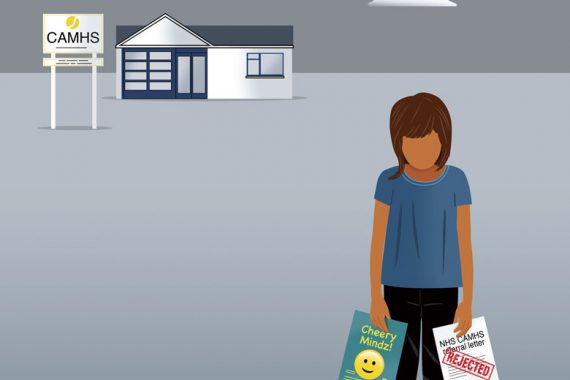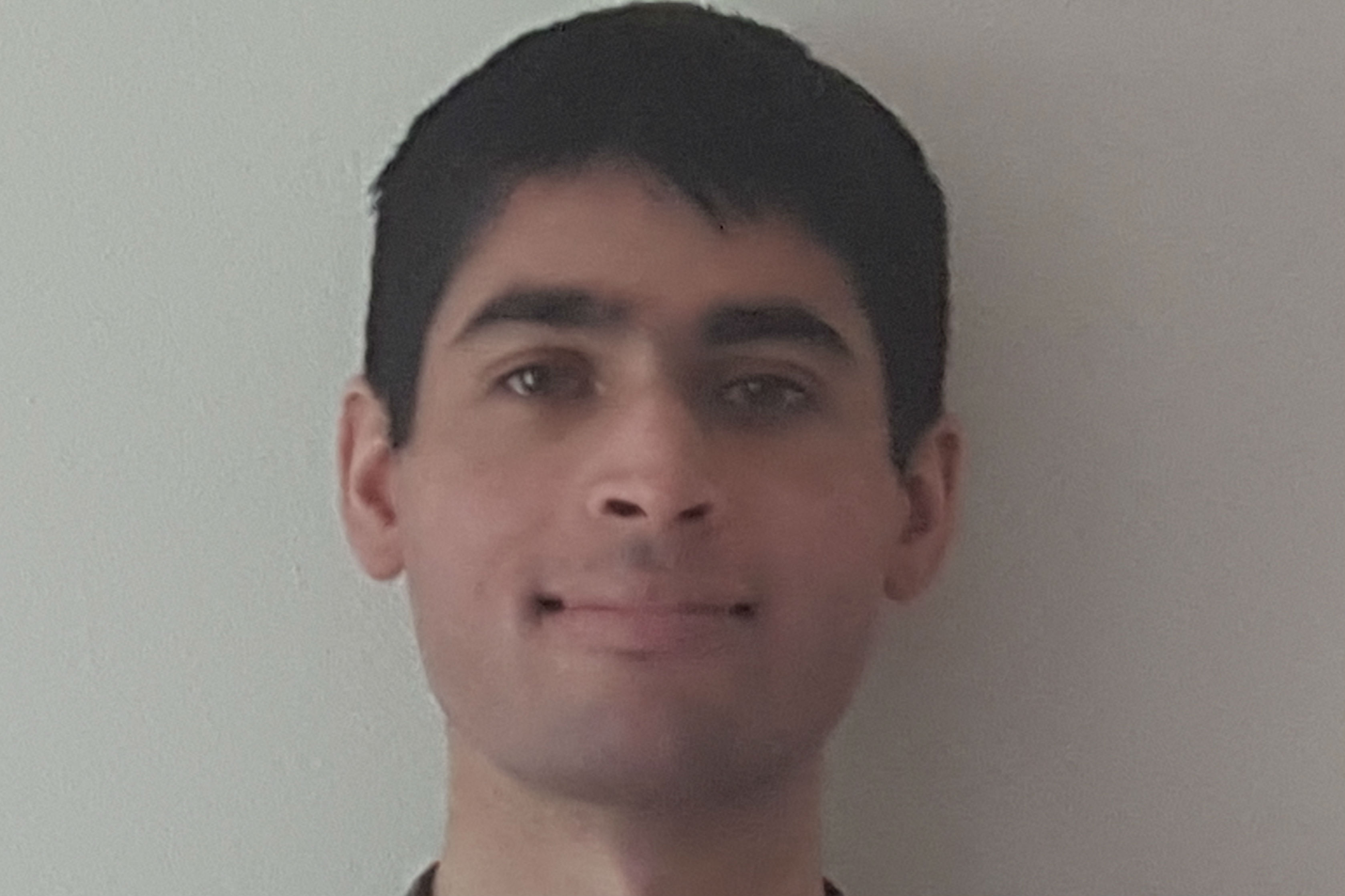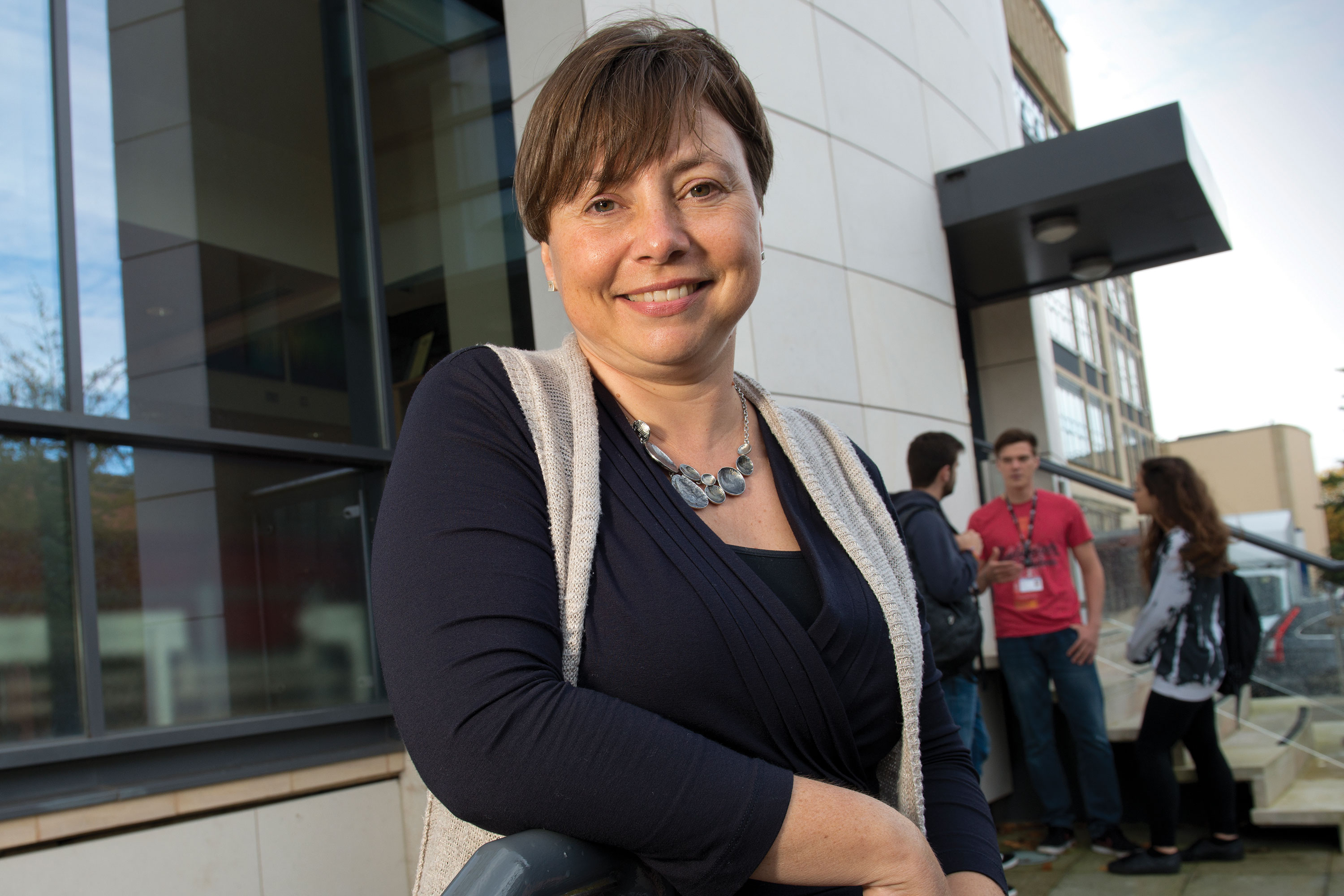Revealed: How CAMHS are restricting GPs’ referrals

‘One way to get to the system very quickly is to attempt suicide,’ says Dr Jonathan Heatley, a GP in West Sussex. ‘Mental health services wash their hands. They just say “it doesn’t meet our criteria” but don’t suggest what does.’
Dr Heatley’s comments will ring a bell with many GPs, as an increasing number of their child and adolescent mental health services (CAMHS) referrals are now being rejected.
A Pulse investigation has revealed one in three NHS mental health trusts only accepts the most severe cases; only around one in five treats all levels of severity. Meanwhile, nearly 30% of 935 GPs surveyed by Pulse earlier this year 1 reported that trusts and commissioners had imposed stricter criteria for CAMHS referrals in the previous 12 months.
In some cases rejections come down to the patient not being considered unwell enough – despite a GP deeming them to be in need of specialist help.
In May, 16-year-old Sam Grant presented to his GP in Milton Keynes with anger, irritability and a report that he was close to exclusion from school.
He was referred to CAMHS but his symptoms did not meet the threshold of ‘moderate to severe’. Sam died by suicide in October and the coroner investigating the case cited the issue around the criteria at his local CAMHS – a service that also failed to suggest alternative assistance.
The coroner concluded: ‘The GP made it clear in his evidence that there is a lack of lower-level assistance for young people who present with “life issues” such as low mood, irritability and anger, but who nonetheless need help and assistance but do not meet the criteria for access to CAMHS services.’
The crisis in CAMHS is not new. A Pulse investigation in 2014 revealed more than three-quarters of CCGs (33 out of 43) were cutting their CAMHS budgets – by 1.8% that year. Yet demand continues to rise. There was an 18% increase in referrals of young people between 2017/18 and 2018/19, according to mental health charity YoungMinds.2
A report by the Education Policy Institute in 20163 found specialist mental health services turn away on average 23% of the young people referred to them for help. This is often due to strict eligibility criteria, the report says.
A Pulse analysis of CAMHS referral criteria reveals the extent to which they vary across the country. Of 56 NHS mental health trusts across England, Pulse analysed 29 that provided comparable criteria on the severity of mental health issues.
The analysis found a third (10) will only take ‘severe’ or ‘significant’ cases – leaving GPs unable to access help for young patients experiencing mild and moderate mental health problems.
Pulse has been told by trusts and GPs that these patients are often directed to charities and other non-NHS bodies as a last resort – although two trusts did tell us their local hospital or community trusts provide treatment for less-severe cases.
However, staff working in charities, such as community care workers, are generally not doctors. Essex GP Dr Maddi Ridley adds: ‘Referrals come back saying they don’t meet the criteria, with examples of where the child or adult can get support locally from counselling services run by charities.
‘But often they need a doctor or a psychiatrist and charities don’t have that option, it’s just trained counsellors.’
In theory GPs can direct patients to a neighbouring trust. But in some cases, all trusts in a region accept only the most severe patients – as is the case in Yorkshire with Humber, South West Yorkshire Partnership, and Bradford District Care NHS Foundation Trusts.
Dr Ridley says mental health services in her area of Essex have explicitly told her only ‘very severe’ cases will be accepted. She says: ‘Most children that need help – those with severe anxiety, self-harmers and school avoiders – aren’t deemed serious enough for the services.
Children are really struggling with mental health and we don’t have a lot to offer
Dr Maddi Ridley
‘We’ve seen quite a number of deaths by suicide in teenage children in our area. Children are really struggling with mental health and we don’t have a lot to offer. For instance, the waiting list for counselling is 18 months.
‘These children do need professional help, there just doesn’t seem to be any facilities available within the NHS.’
Some mental health trusts also use age as a criterion for acceptance. For example, Southern Health NHS Foundation Trust in Hampshire will only take children aged 12 to 18 – and offers only the most complex treatment at tier 4 level, involving inpatient care.
Similarly, Leeds and York Partnership NHS Trust will only take children aged 13 to 18 in York – and again only provides inpatient care. And while the majority of child and adolescent care is provided by mental health trusts, some areas rely on community or acute trusts instead, which can also impose tough criteria.
Distressed families will often return to their GP, pressuring them to prescribe drugs – when guidelines prevent them doing so for children. Dr Ridley says: ‘I know parents are extremely frustrated. I do see a lot of very anxious children and it is not fair, there should be something more for them.’
There is also a feeling among patients and parents that they are being fobbed off when directed to charities. Kent GP Dr Zishan Syed says GPs end up being the target of complaints: ‘Patience wears thin and GPs often bear the brunt of complaints made by patients for secondary mental health failings.’
BMA GP committee chair Dr Richard Vautrey says increasingly strict referral requirements reflect the lack of resources to deal with spiralling demand. ‘This can mean only the sickest patients are getting the care they need.
Many young people with less severe but still serious issues are not getting access to the specialist care their GP believes they need, or are having to wait until their condition worsens before they are seen by a specialist,’ he says.
Yet, strict criteria are not the only reason referrals are rejected. In August, a coroner criticised the referral form required by a CAMHS in Sheffield, for capturing ‘insufficient’ information. Sheffield Children’s Hospital NHS Foundation Trust’s CAMHS team rejected the referral, asking the GP for more information – but the 15-year-old patient died by suicide in the intervening month.
Dr Heatley says referral information can be ‘very complicated’. ‘You can’t just dictate a letter, they use templates that take a lot of filling in. There are strict criteria but we’re never quite sure until we get a refusal. You have to speak to the people themselves to find out the criteria because they tend not to tell us. We only find out later when the referral has bounced back on us.’
Dr Syed adds: ‘The criteria are made so difficult that it’s hard to get a referral accepted. This puts the burden on GPs, who appear to have no means to fight back on behalf of their patients.’
‘GPs cannot be expected to manage complex mental health cases’

Zishan Syed
One of my younger patients was referred to CAMHS. This was against a background of deteriorating mental health, including self-harm. But obtaining a review was a massive uphill struggle and counselling psychotherapy services were refused as the patient was under 18.When we finally obtained the review, the next problem was facilitating it. There was a keenness from the service to discharge the patient following a lack of attendance.
By nature, this kind of patient is prone to not attending appointments but, given the time taken to secure the referral, I would have thought services would have been tailored to the patient’s needs with more opportunities to assess them. I got the impression this was deliberately the case to manage referral demand.
It is not just a problem for children and young people. We need a complete redesign, not just in mental health but in secondary healthcare. If the Government isn’t committed to supporting primary care services with more funding directly into practices, it cannot expect us to miraculously be able to manage complex mental health cases in the community. I am dealing with a case that requires tertiary services.
Secondary mental health care discharged the patient back to primary care, advising they couldn’t manage the case. I wonder how they expect me to manage it if they could not. I feel nobody cares about the GP’s dilemma – who do we discharge to?
Dr Zishan Syed is a GP in Kent
In 2015, the Government pledged £1.4bn to improve child mental health by 2020. However, the Education Policy Institute report the following year revealed CCGs had seen only £75m of the expected £250m for the first year.
It’s not just CAMHS that is suffering. NHS England admitted in February last year that most people diagnosed with anxiety and depression still ‘don’t have an opportunity to access psychological therapy’. It has committed to giving 1.9 million people access to the IAPT programme – which offers adults talking therapies, mainly for anxiety and depression – by 2023/24.
Despite its apparent success – NHS England says IAPT has met its national targets that 75% of people start treatment within six weeks of referral, and at least 50% of those who complete treatment recover – IAPT is bulging at the seams.
A Pulse analysis in 2018 of NHS Digital data4 shows 30% of people referred to IAPT never begin treatment and 42% of those who do start the programme only complete one session.
Of those who do go beyond one session, more than half wait longer than a month for the second, which contravenes NICE guidelines.
Leicestershire GP Dr Mayur Lakhani says: ‘These services face huge pressures. Even increased investment is not showing results quickly enough. We need a radical new commissioning approach.’
Even increased investment is not showing results quickly. We need a radical new approach
Dr Mayur Lakhani
The issue of GP shortages is compounding the problem. In 2017, coroner Lisa Hamshi wrote to the then Department of Health expressing concerns at the strain on practices, after ruling the death of a 26-year-old was a ‘knock-on-effect’ from the lack of GPs.
The patient, Christopher Fairhurst, died from alcohol poisoning and had a diagnosis of depression – but found it hard to get a GP appointment.
Dr Heatley says: ‘GPs’ time is being squeezed and it’s difficult to find the time to give to mentally ill people, especially if they’re not getting help from elsewhere, so GP shortages don’t help.’
NHS England says it is investing more in mental health care for children, through the NHS long-term plan.
A spokesperson said: ‘The NHS is ahead of its target on ensuring as many children as possible receive mental health care, and the long-term plan commits to ensuring an extra 345,000 children and young people get the care they need by 2023, backed by extra funding of £2bn.’
In their manifesto, the Conservatives continued the theme of using the third sector, saying the NHS ‘is joining forces with housing services, charities and employment services to give personalised, holistic, mental health care and advice’.
The party reaffirmed the commitments in NHS long-term plan for a ‘new ringfenced local investment fund worth at least £2.3bn a year by 2023/24’. But if these commitments go the same way as previous ones, patients will continue to bear the brunt of the shortfall.
Dr Heatley says: ‘There’s a lot of emphasis on prevention but that’s not really happening. And the other galling thing is there’s all this Twitter, Snapchat and Facebook effort to make people more aware of mental illness but the services aren’t there when they admit to it.’
Experts warn early intervention is paramount, and without more resources children will continue to come to harm. Consultant psychiatrist and BMA consultants committee mental health lead Dr Andrew Molodynski says: ‘Forcing children and young people to wait until they are severely unwell for treatment puts them at unnecessary risk.
‘Staff in specialist mental health services see first-hand the damage treatment delays cause to young people and their loved ones. Without vast improvement to, and increased investment in, these services and their workforce, children will continue to suffer.’
What to do if your local trust imposes thresholds

Dr Dominique Thompson
Be compassionate and supportive Take the time to listen to the parents’ distress. As a GP, you will have to understand the complexity of the case and its context. Parents are probably at their wits’ end, dealing with this day in day out, and they are going to need support.
Assess risk and explain where emergency help can be sought Help the parents and the child become more informed about NHS and non-NHS services and what to do if there is a mental health crisis. Give them the number of the local CAMHS crisis team.
Make sure the child’s school is aware Get the schools onboard, where possible. More schools are training staff to deal with mental health. They can provide in-school support and be more in tune with young people’s mental health issues.
Advise on behavioural routines Make sure the child sleeps enough, exercises and gets fresh air. Suggest mindfulness apps to help them learn to relax or sleep.
Be aware that certain groups are more at risk than others Young people who are LGBT, for example, are more at risk than others of self-harm or suicidal behaviour. Look at websites and organisations that specifi cally support these young people.
Dr Dominique Thompson is a former GP and an expert in student mental health
References
1Pulse survey launched in June collating responses using the SurveyMonkey tool. The 35 questions asked covered a wide range of GP topics, to avoid selection bias on one issue. The survey was advertised to our readers via our website and email newsletter, with a prize draw for £300 John Lewis vouchers as an incentive to complete the survey
2Young Minds, 2019. Lack of early support for young people’s mental health puts pressure on GPs. tinyurl.com/survey-YM
3Education Policy Institute, 2016. Children and Young People’s Mental Health: Time to Deliver. tinyurl.com/epi-2016report
4Pulse, 2019. Revealed: How patients referred to mental health services end up back with their GP. tinyurl.com/Pulse-IAPT
Pulse October survey
Take our July 2025 survey to potentially win £1.000 worth of tokens

Visit Pulse Reference for details on 140 symptoms, including easily searchable symptoms and categories, offering you a free platform to check symptoms and receive potential diagnoses during consultations.
Related Articles
READERS' COMMENTS [1]
Please note, only GPs are permitted to add comments to articles











i disagree : referral criteria are very clear : successful suicides meet the criteria, others do not.